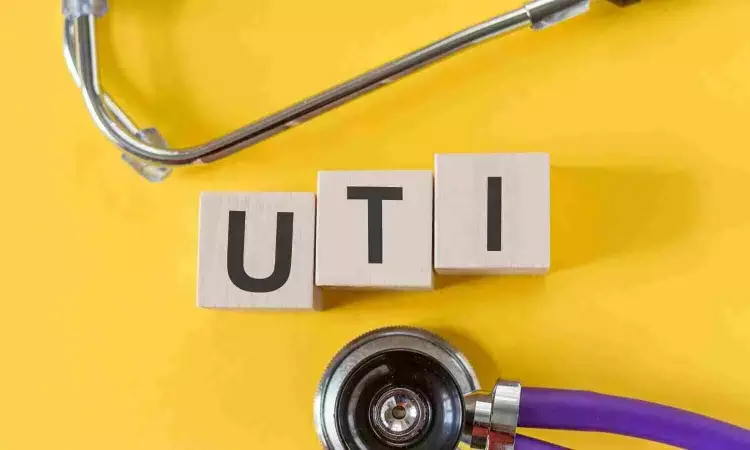- Home
- Medical news & Guidelines
- Anesthesiology
- Cardiology and CTVS
- Critical Care
- Dentistry
- Dermatology
- Diabetes and Endocrinology
- ENT
- Gastroenterology
- Medicine
- Nephrology
- Neurology
- Obstretics-Gynaecology
- Oncology
- Ophthalmology
- Orthopaedics
- Pediatrics-Neonatology
- Psychiatry
- Pulmonology
- Radiology
- Surgery
- Urology
- Laboratory Medicine
- Diet
- Nursing
- Paramedical
- Physiotherapy
- Health news
- Fact Check
- Bone Health Fact Check
- Brain Health Fact Check
- Cancer Related Fact Check
- Child Care Fact Check
- Dental and oral health fact check
- Diabetes and metabolic health fact check
- Diet and Nutrition Fact Check
- Eye and ENT Care Fact Check
- Fitness fact check
- Gut health fact check
- Heart health fact check
- Kidney health fact check
- Medical education fact check
- Men's health fact check
- Respiratory fact check
- Skin and hair care fact check
- Vaccine and Immunization fact check
- Women's health fact check
- AYUSH
- State News
- Andaman and Nicobar Islands
- Andhra Pradesh
- Arunachal Pradesh
- Assam
- Bihar
- Chandigarh
- Chattisgarh
- Dadra and Nagar Haveli
- Daman and Diu
- Delhi
- Goa
- Gujarat
- Haryana
- Himachal Pradesh
- Jammu & Kashmir
- Jharkhand
- Karnataka
- Kerala
- Ladakh
- Lakshadweep
- Madhya Pradesh
- Maharashtra
- Manipur
- Meghalaya
- Mizoram
- Nagaland
- Odisha
- Puducherry
- Punjab
- Rajasthan
- Sikkim
- Tamil Nadu
- Telangana
- Tripura
- Uttar Pradesh
- Uttrakhand
- West Bengal
- Medical Education
- Industry
Expanded Periurethral Cleansing may mitigate Catheter-Associated UTI Risk in Comatosed Patients: Study

Expanded Periurethral Cleansing may mitigate Catheter-Associated UTI Risk in Comatosed Patients suggests a study published in the Critical Care News.
The effect of the periurethral cleansing range on catheter-associated urinary tract infection (CAUTI) occurrence remains unknown. The purpose of this study was to evaluate the efficacy of expanded periurethral cleansing for reducing CAUTI in comatose patients. In this randomized controlled trial, eligible patients in our hospital were enrolled and allocated randomly to the experimental group (expanded periurethral cleansing protocol; n = 225) or the control group (usual periurethral cleansing protocol; n = 221). The incidence of CAUTI on days 3, 7, and 10 after catheter insertion were compared, and the pathogen results and influencing factors were analyzed. Results: The incidences of CAUTI in the experimental and control groups on days 3, 7, and 10 were (5/225, 2.22% vs. 7/221, 3.17%, P = 0.54), (12/225, 5.33% vs. 18/221, 8.14%, P = 0.24), and (23/225, 10.22% vs. 47/221, 21.27%, P = 0.001), respectively; Escherichia coli and Candida albicans were the most common species in the two groups.
The incidences of bacterial CAUTI and fungal CAUTI in the two groups were 11/225, 4.89% vs. 24/221, 10.86%, P = 0.02) and (10/225, 4.44% vs. 14/221, 6.33%, P = 0.38), respectively. The incidences of polymicrobial CAUTI in the two groups were 2/225 (0.89%) and 9/221 (4.07%), respectively (P = 0.03). The percentages of CAUTI-positive females in the two groups were 9.85% (13/132) and 29.52% (31/105), respectively (P < 0.05). The proportion of CAUTI-positive patients with diabetes in the experimental and control groups was 17.72% (14/79), which was lower than the 40.85% (29/71) in the control group (P < 0.05). Expanded periurethral cleansing could reduce the incidence of CAUTI, especially those caused by bacteria and multiple pathogens, in comatose patients with short-term catheterization (≤ 10 days). Female patients and patients with diabetes benefit more from the expanded periurethral cleansing protocol for reducing CAUTI.
Reference:
Pu Y, Wang M, Hong Y, Bai J. Prognostic factors associated with pulp status in patients with cracked teeth treated with occlusal veneer: A 6- through 24-month prospective clinical study. J Am Dent Assoc. 2024 May;155(5):390-398.e2. doi: 10.1016/j.adaj.2024.02.004. Epub 2024 Mar 27. PMID: 38530693.
Dr Kartikeya Kohli is an Internal Medicine Consultant at Sitaram Bhartia Hospital in Delhi with super speciality training in Nephrology. He has worked with various eminent hospitals like Indraprastha Apollo Hospital, Sir Gangaram Hospital. He holds an MBBS from Kasturba Medical College Manipal, DNB Internal Medicine, Post Graduate Diploma in Clinical Research and Business Development, Fellow DNB Nephrology, MRCP and ECFMG Certification. He has been closely associated with India Medical Association South Delhi Branch and Delhi Medical Association and has been organising continuing medical education programs on their behalf from time to time. Further he has been contributing medical articles for their newsletters as well. He is also associated with electronic media and TV for conduction and presentation of health programs. He has been associated with Medical Dialogues for last 3 years and contributing articles on regular basis.


